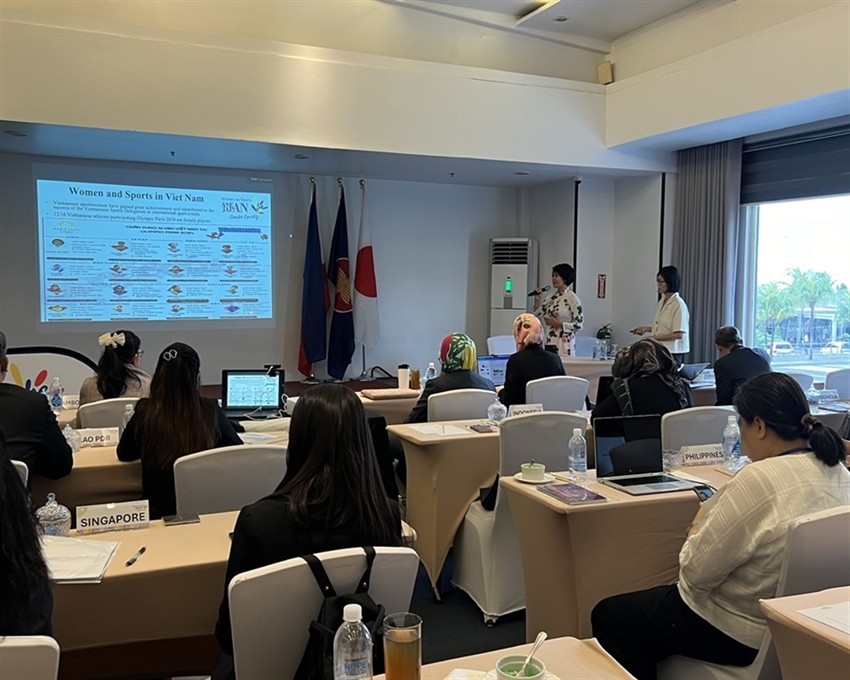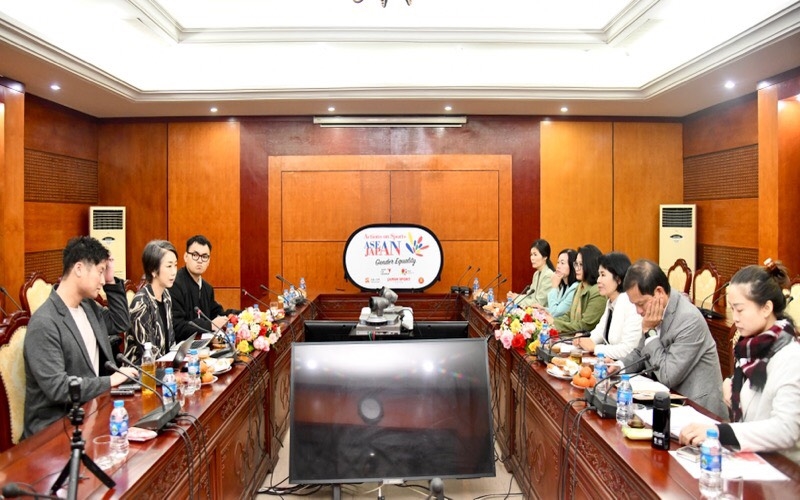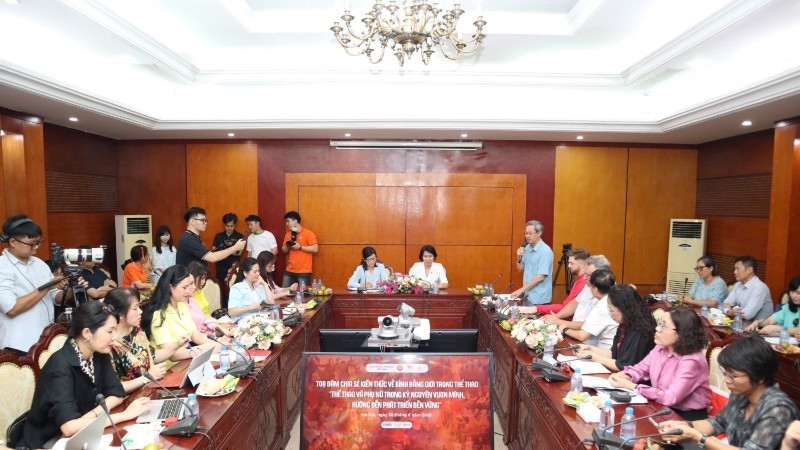Led by Seijo University (Japan), the project has not only brought positive results to member countries but also affirmed the role of sports as a powerful tool to empower women and girls.

The Japan-ASEAN Gender Equality in Sports Seminar will take place on January 8-9, 2025 at TRYP by Wyndham Mall of Asia Manila, Philippines, bringing together 22 representatives of ASEAN member countries
The Gender Equality in Sports Project, under the ASEAN-Japan Action Plan, is implemented in close cooperation with the ASEAN Secretariat. After its operation, online and in-person working sessions have been held to review achievements and discuss future plans. According to Mr. Sho Sato, project manager, this initiative has brought about many remarkable results in countries such as Vietnam, Indonesia, Cambodia, Singapore, Thailand, the Philippines and Brunei.
One of the key activities of the project is the organization of thematic workshops. Typically, the ASEAN-Japan Workshop on Gender Equality in Sports in Hanoi in January 2024 focused on integrating a gender perspective into sports policy. Most recently, the Workshop in Manila (Philippines) in January 2025 continued to delve into monitoring and evaluating gender equality policies.
In-depth studies of the cultural and social contexts in countries such as Indonesia, Vietnam, and the Philippines have contributed to affirming the importance of sports for women. In parallel, surveys throughout 2023-2024 have helped collect gender-specific data, thereby identifying country-specific priorities as well as common challenges facing the 10 ASEAN countries.
The project’s plenary meeting, scheduled to take place in the first quarter of 2026 in Cambodia, will provide an opportunity for policymakers to discuss medium- and long-term policies that systematically integrate gender into sports activities and budgets. With financial support from the Government of Japan through the Japan-ASEAN Integration Fund (JAIF), and cooperation from international organizations such as UN Women, the project is expected to make new strides, supporting ASEAN countries to build a generation of women leaders capable of contributing to the goal of comprehensive gender equality.

A delegation from Seijo University, Japan visited and worked in Vietnam to analyze the challenges and difficulties of women and girls participating in sports activities in Vietnam
Impact of the project in Vietnam
Looking ahead, the project will focus on developing a comprehensive plan for the next 5 years, including goals and priorities. According to Deputy Director of the Vietnam Sports Administration Le Thi Hoang Yen, Vietnam has identified medium-term goals, with the top priority being to promote female leadership in sports and provide career development skills for female athletes. To realize this, activities such as gender equality training for managers, organizing sports tournaments specifically for women and honoring outstanding female teams will be promoted.
Ms. Le Thi Hoang Yen also emphasized the diversity in the women's sports movement in Vietnam, from top athletes such as Nguyen Thi Anh Vien and Nguyen Thi Oanh to women participating in community sports such as yoga and running. This is the result of effective policy communication and positive changes in health awareness in society.
Deputy Director Le Thi Hoang Yen shared the view that each female coach and athlete is an example of resilience and influence. Vietnamese women always receive support from their families and society, and are a model of "being good at public affairs and taking care of the house."
During the project implementation, many activities on gender equality have been organized in Vietnam. Notably, the gender equality interview activity "women and sports" in January 2024 in Hanoi with the participation of female coaches, athletes, officials, leaders of state management agencies and Vietnam Sports Federations/Associations or the Gender Equality in Sports Seminar with the theme: "Sports and women in the era of rising up, towards sustainable development" in June 2025.

Vietnam organized a seminar with the theme "Sports and women in the era of rising up, towards sustainable development" within the framework of the ASEAN + Japan Gender Equality Project
These events play a key role in promoting in-depth dialogue and raising awareness of the role of women in the field of sports. By bringing together female coaches, athletes, managers and leaders of Federations/Associations, the interviews and panel discussions provided multi-dimensional perspectives from the insiders themselves.
At these events, they had the opportunity to share their successes, challenges and inspirational stories, thereby highlighting the value and great contributions of women to Vietnamese sports. Listening directly to these stories helps to break down old stereotypes and build a new, more modern image of women in sports.
The information, data and opinions collected from these events are valuable resources for policy makers to develop and adjust appropriate strategies. Instead of relying solely on theory, listening to the practical opinions of women directly involved in sports will help policies be made more effective and closer to reality.
In addition, these events also create a connecting space for stakeholders, from state agencies to social organizations, to find common solutions. This not only helps Vietnam achieve its gender equality goals but also contributes to the sustainable development of the country's sports in the new era.
|
The project "ASEAN-Japan Actions on Sports: Gender Equality" is implemented by Seijoh University (through the International Research Center for Sports and Gender Equality - SGE) with the following main objectives:
Promoting gender equality through sports: Aiming to create a society where women and girls in ASEAN countries can access sports safely and equally, and enjoy all the benefits that sports bring.
Supporting policy making: Providing objective research results to ASEAN governments on the importance of women and girls participating in sports, as well as factors that hinder their participation, thereby supporting the development of appropriate policies.
Raising awareness and capacity: Organizing workshops and training courses for policy makers and stakeholders to mainstream gender into sports policies.
Government of Japan: Through the Japan-ASEAN Integration Fund (JAIF) and the Japan Sport Council's "Sport for Tomorrow" program, the project is financially supported.
In addition to the ASEAN Secretariat, international organizations: such as UN Women and the Global Observatory for Gender and Sport (GO) are also participating in the cooperation.
|
Ha Phuong